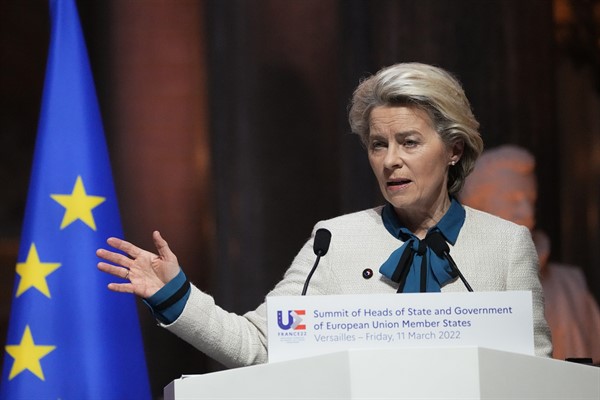Just days after Russia’s invasion of Ukraine, as Europe still reeled in shock, German Chancellor Olaf Scholz declared that it was time for what he called a Zeitenwende, or sea change, in how the country approaches national and collective defense. Announcing huge increases in Germany’s defense budget, Scholz’s speech to the Bundestag—the German Parliament—on Feb. 27 represented an epochal shift in Germany’s strategic priorities. But it also reflected a wider reassessment across the European Union over how to respond to military threats facing Europe’s neighborhood.
The dilemmas that rapid rearmament has raised for Germany are vast. Having been worn down through decades of underinvestment, the German military is now riddled with institutional dysfunctions that will require a huge effort to tackle. Coupled with frantic attempts to prepare German society for the toll that ending Russian gas imports will exact on businesses and consumers alike, the dilemmas Germany alone now faces will absorb the attention of German policymakers for years to come.
Yet the scale of the challenge facing the EU goes far beyond Berlin, in ways that are reshaping every state connected to the EU system. Though much time was subsequently wasted by German and other Western European governments, the shock of the Russian seizure of Crimea in March 2014 already drove a shift in perceptions across the EU of the threat that an aggressive Russian regime under President Vladimir Putin posed to European integration. Russia’s subsequent willingness to project military force—directly in Syria and using mercenaries in Libya, the Sahel region and other pressure points around the EU’s borders—infuriated Italian, Spanish and French officials who may otherwise have been less willing to view Putin as a dangerous adversary.

